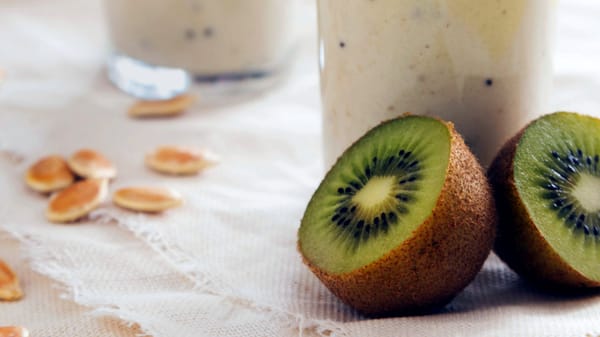Keto Diet for Longevity: Unlocking the Secrets

The keto diet has gained significant attention in recent years for its potential to promote weight loss, improve mental clarity, and even increase longevity. But what exactly is the keto diet, and how does it impact our bodies?
In this article, we'll delve into the world of keto and explore its connection to a longer, healthier life.


What is Keto
The keto diet, short for ketogenic diet, has a rich history dating back to the early 20th century. Initially developed as a therapeutic approach to manage epilepsy, the diet has since evolved into a popular lifestyle choice for those seeking to improve their overall health and longevity.
At its core, the keto diet is a high-fat, low-carbohydrate, moderate-protein diet that aims to shift the body's metabolic state from relying on glucose for energy to relying on ketones.
The key principles of the keto diet are as follows:
- High-fat intake: 70-80% of daily calories come from fat sources such as oils, nuts, and fatty fish.
- Low-carbohydrate intake: 5-10% of daily calories come from carbohydrate sources such as sugars, grains, and starchy vegetables.
- Moderate-protein intake: 15-20% of daily calories come from protein sources such as meat, poultry, and fish.
- Focus on whole foods: Emphasis is placed on whole, nutrient-dense foods rather than processed and packaged foods.
- Hydration and electrolytes: Adequate hydration and electrolyte intake are crucial to support the body's metabolic state.
The keto diet differs from other diets in its unique macronutrient ratio, which is designed to induce a metabolic state called ketosis.
In ketosis, the body burns fat for energy instead of carbohydrates, resulting in a range of potential health benefits, including improved blood sugar control, increased energy, and enhanced longevity.

Keto and Weight Loss
The keto diet has been widely recognized for its potential in promoting weight loss, and for good reason. By drastically reducing carbohydrate intake and increasing fat consumption, the body is forced to adapt and find alternative sources of energy.

This is achieved through a metabolic state known as ketosis, in which the liver converts fat into molecules called ketones, which can be used by the brain, heart, and other organs for energy.
When the body is in a state of ketosis, it burns fat for energy instead of relying on glucose from carbohydrates. This not only leads to weight loss but also has a profound impact on hunger and metabolism.
Many people who follow a keto diet report feeling less hungry and having more energy, as their bodies are able to efficiently burn fat for fuel. The benefits of keto for weight loss are numerous:
- Increased fat burning: By putting the body into a state of ketosis, the keto diet allows for efficient fat burning and weight loss.
- Reduced hunger: The high-fat diet helps to keep hunger at bay, making it easier to stick to a weight loss plan.
- Improved metabolism: The keto diet has been shown to improve metabolic function, leading to increased energy and weight loss.
- Preservation of muscle mass: Unlike other diets that can lead to muscle loss, the keto diet helps to preserve muscle mass while promoting weight loss.
Overall, the keto diet offers a unique approach to weight loss that not only promotes fat burning but also has a positive impact on hunger and metabolism.

Keto and Longevity
The connection between the keto diet and increased longevity is multifaceted, involving the reduction of oxidative stress, inflammation, and the promotion of cellular health.
Oxidative stress, a state of imbalance between the production of free radicals and the body's ability to neutralize them, is a key contributor to aging. The keto diet has been shown to decrease oxidative stress by increasing the production of antioxidants and reducing the production of free radicals. Inflammation, another major contributor to aging, is also reduced on a keto diet. By decreasing the intake of inflammatory foods such as sugar and grains, and increasing the intake of anti-inflammatory foods such as omega-3 fatty acids, the keto diet has been shown to reduce systemic inflammation.
The keto diet also promotes cellular health by increasing the production of a protein called AMPK, which is responsible for maintaining cellular homeostasis. This is achieved through the restriction of carbohydrates, which in turn, activates AMPK. Caloric restriction, a well-known promoter of longevity, is also a key component of the keto diet.
By restricting the intake of carbohydrates and increasing the intake of fat, the keto diet promotes a state of caloric restriction without the need for severe calorie restriction. The potential benefits of the keto diet for longevity include:
- Increased lifespan
- Improved cellular health
- Reduced oxidative stress
- Reduced inflammation
- Improved insulin sensitivity
- Reduced risk of chronic diseases such as cancer, diabetes, and cardiovascular disease
Implementing a Keto Lifestyle
Implementing a keto lifestyle requires careful planning, attention to detail, and a willingness to listen to your body. To start, focus on whole, nutrient-dense foods, including:
- Fatty fish: salmon, tuna, and mackerel
- Meat: beef, pork, and lamb
- Poultry: chicken, duck, and turkey
- Eggs: pastured and organic
- Full-fat dairy: cheese, butter, and cream
- Vegetables: dark, leafy greens, broccoli, and cauliflower
- Nuts and seeds: almonds, walnuts, and chia seeds
- Healthy oils: olive, coconut, and avocado oil
A sample meal plan might include:
- Breakfast: scrambled eggs with spinach and avocado, topped with cherry tomatoes
- Lunch: grilled salmon with a side of cauliflower rice and a drizzle of olive oil
- Dinner: beef stir-fry with broccoli, bell peppers, and a side of a small side salad with olive oil and vinegar dressing
When grocery shopping, read labels carefully and avoid foods with added sugars, grains, and unhealthy oils. Start with small changes and gradually work your way into a full keto lifestyle.
Listen to your body and make adjustments as needed – if you're feeling fatigued or experiencing digestive issues, consider consulting with a healthcare professional or registered dietitian for personalized guidance.
Conclusions
In conclusion, the keto diet offers a unique approach to promoting weight loss, improving mental clarity, and potentially increasing longevity.
By understanding the science behind the keto lifestyle and implementing practical tips and advice, individuals can unlock the secrets to a longer, healthier life.




